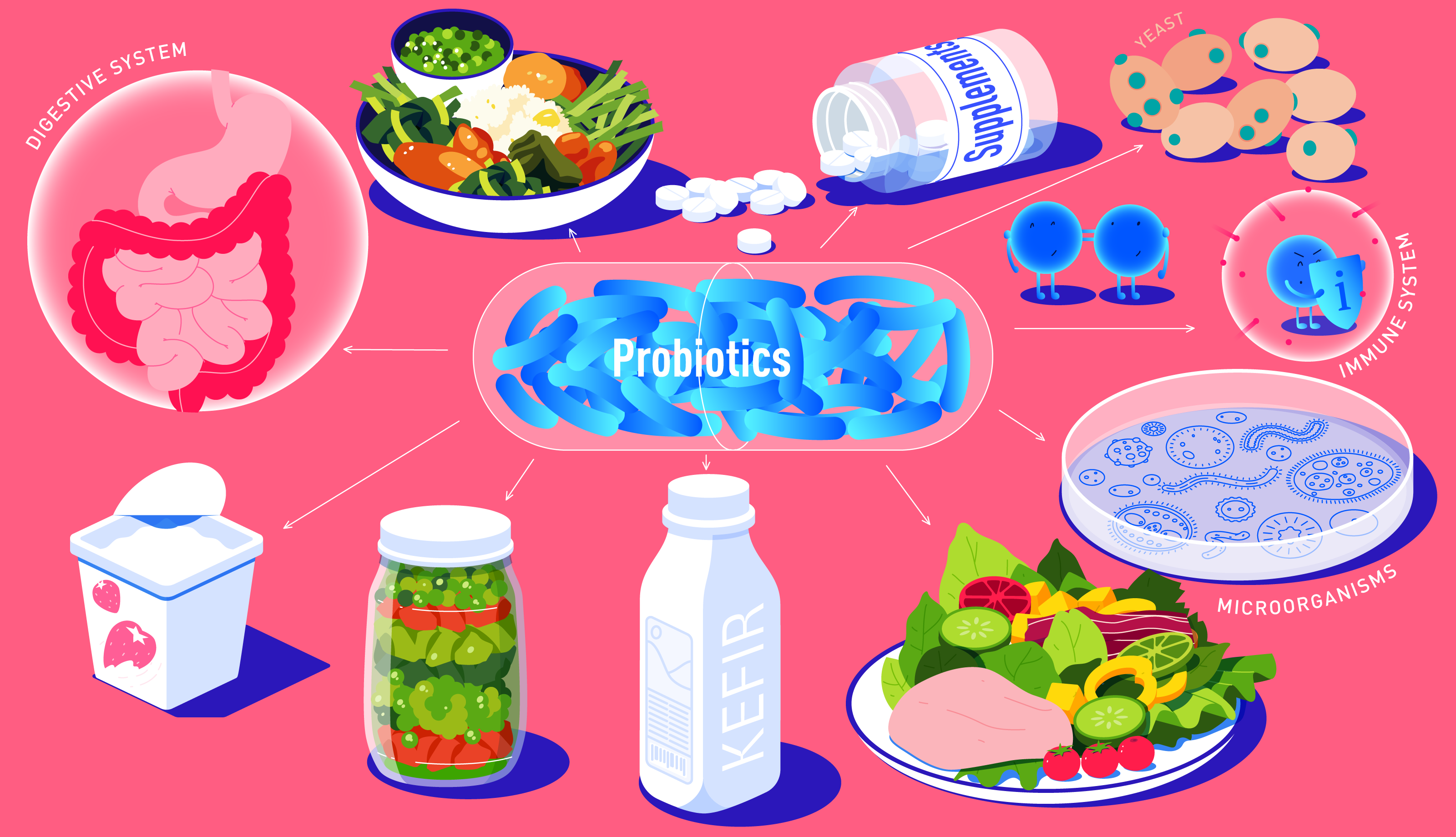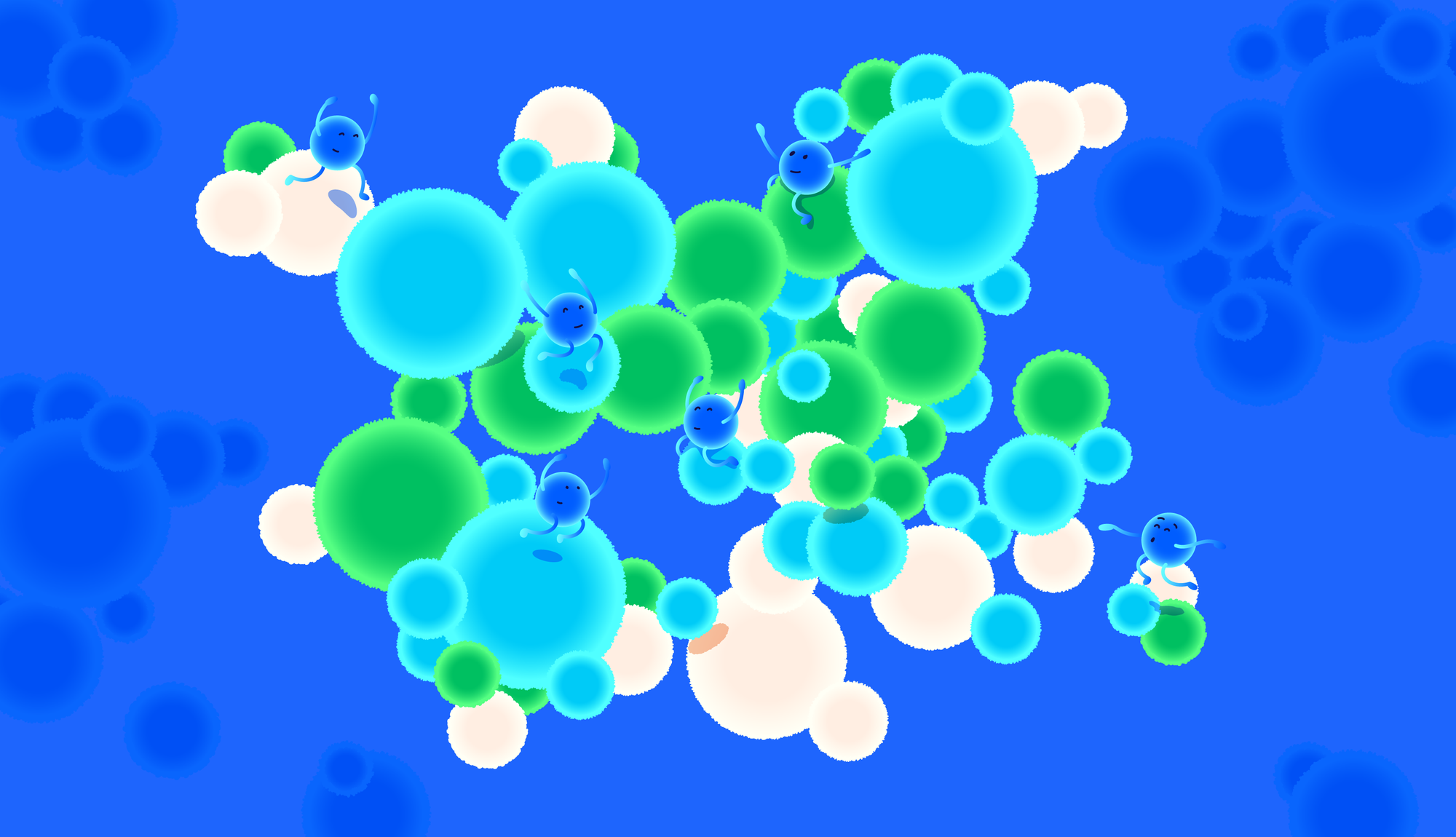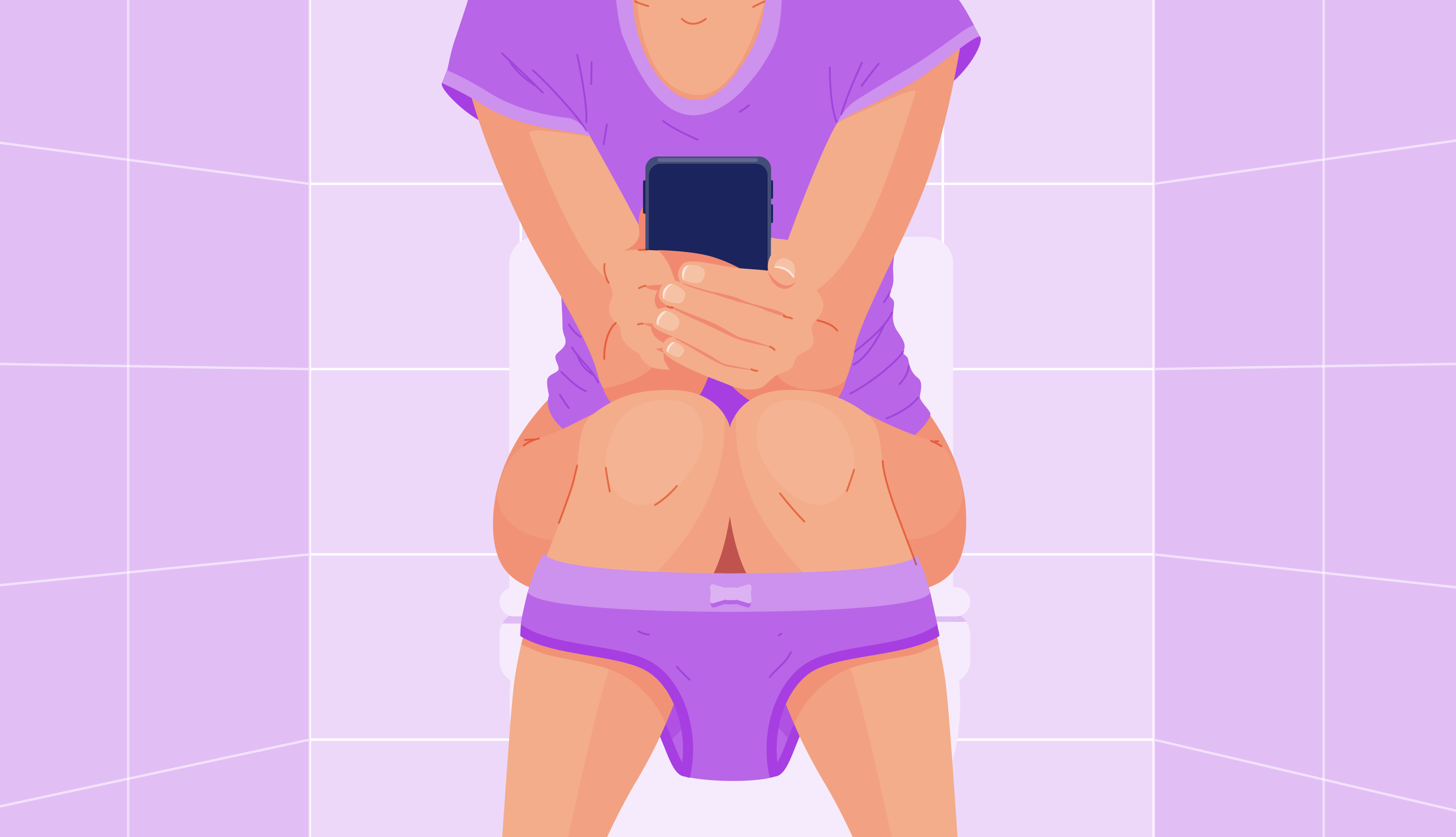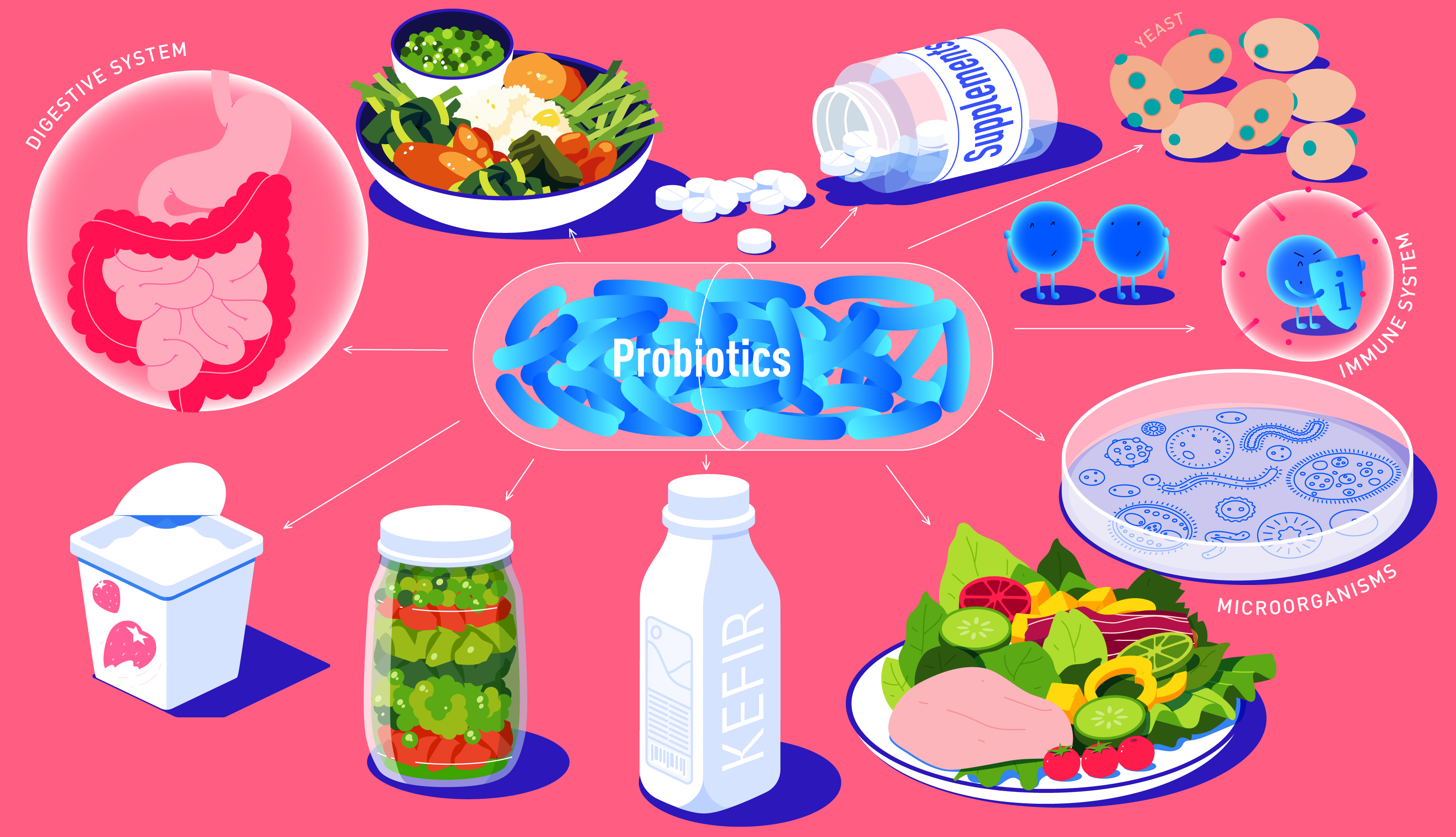Taking probiotics for IBS can give your colonic microbiota a boost. Check out this guide if you’re looking for the best probiotic for IBS constipation, diarrhea, or mixed type.
Probiotics are beneficial live bacteria which when introduced into the body, via food and supplements, have positive effects on your health. This is made possible by your gut microbiome – the trillions of bacterial cells that live in your large intestine.
When your microbiome is balanced, it keeps your gut happy, prevents inflammation, and wards off invaders that could make you sick.
On the other hand, dysbiosis – an unbalanced microbiome where there is an overabundance of some bacteria, or not enough beneficial bacteria – has been associated with irritable bowel syndrome (IBS) and may trigger certain symptoms.
Table of contents
- Are probiotics good for IBS?
- Probiotics for diarrhea IBS
- Probiotics for flatulence
- Probiotics for bloating
- Do probiotics help with constipation?
- What is the best probiotic for IBS?
- Key takeaway points
Probiotic bacteria and supplements can help bring order to the gut microbiome by encouraging the growth of the bacteria that keep you healthy and preventing the overgrowth of others. However, not every probiotic strain works for IBS, so we’ve done the research and identified the most effective probiotic IBS strains for specific digestive problems.
☝️DISCLAIMER☝This article is for informational purposes only. It is not intended to constitute or be a substitute for professional medical advice, diagnosis, or treatment.
Are probiotics good for IBS?
IBS is a common digestive system disorder that causes symptoms like diarrhea, constipation, bloating, and stomach cramps. There is no cure for IBS, but probiotics might be able to relieve the symptoms.
Probiotics help to stabilise the bacterial communities in your gut by introducing helpful live bacteria that keep the gut lining healthy, maintain order between microbes, and balance the pH.
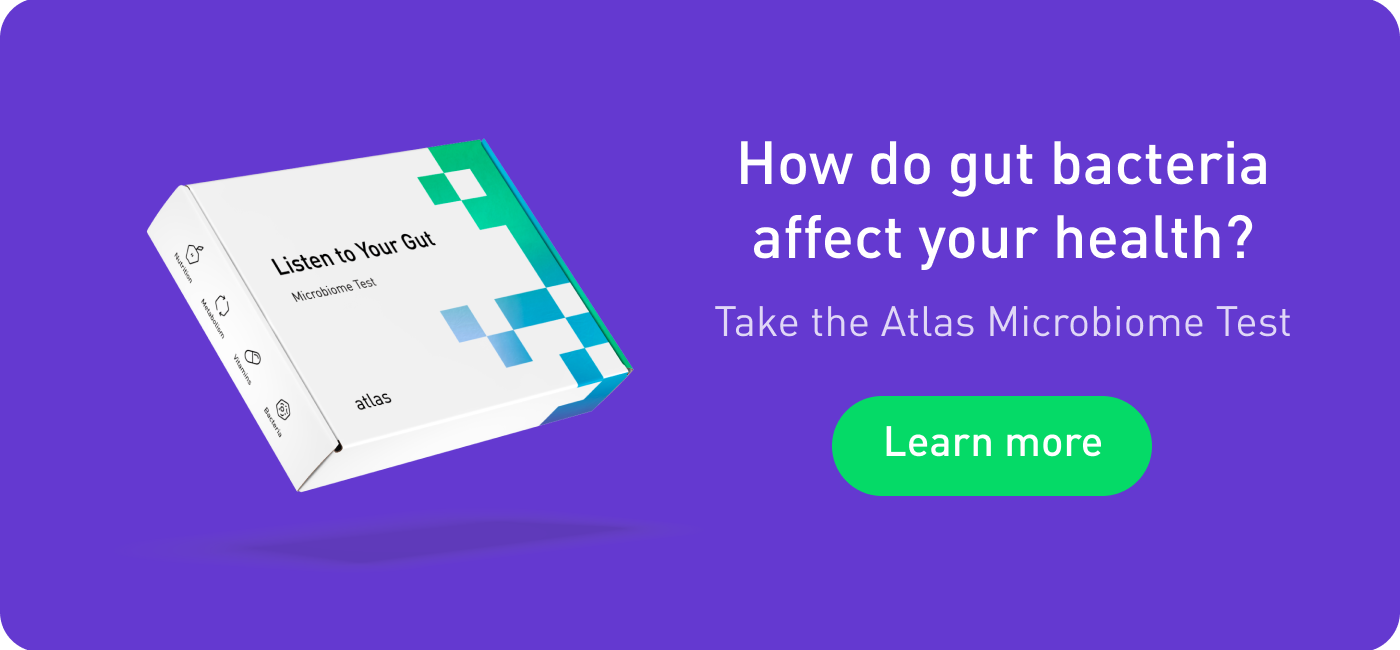
There are many different IBS symptoms and there are specific probiotic strains for each symptoms:
| Probiotic Strain | Benefits |
|---|---|
| S. boulardii | loose stools |
| B.infantis 35624 | abdominal discomfort, gas, bloating, straining |
| B. lactis BB-12 | straining, poor gut motility, bowel regularity |
| B. lactis DN-173 010 | bloating, gastrointestinal transit, constipation |
| B. bifidum MIMBb75 | abdominal pain and/or discomfort, bloating |
| L. plantarum Lp299v | abdominal discomfort, gas, bloating, bowel regularity |
Probiotics for diarrhea IBS
The Saccharomyces boulardii yeast is among the most promising of probiotics for diarrhea IBS. A 2014 study found that, when administered with ispaghula husk, a type of dietary fibre used to treat bowel movement issues, S. boulardii had an anti-inflammatory effect which could presumably be associated with an improvement in overall symptoms.
One study using the multi-strain Bio-Kult®️ probiotic brand with 14 different bacteria was effective at improving abdominal pain and stool frequency in patients with IBS-D over a 16-week period. The participants reported no serious side effects and a significant improvement in quality of life.
☝Can probiotics help IBS?☝Yes, research has shown that single and multi-strain probiotics can help improve specific IBS symptoms.
Probiotics for flatulence
Excessive flatulence may be caused by bacteria in your large intestine. Your microbiome breaks down hard-to-digest dietary fibres and undigested food that makes it your gut. This process can result in the production of gases, which increase flatulence and cause abdominal pain.
Researchers think that the gut lining of IBS patients is more sensitive to pain signals than healthy people, making them more susceptible to abdominal pain caused by normal amounts of gas.
One probiotic flatulence solution is L. plantarum 299v. One 4-week long clinical trial with 214 participants demonstrated that this probiotic relieved gas and bloating in the treatment group compared to the placebo group.
Probiotics for bloating
A multi-strain probiotic brand for IBS, VSL#3, reduced bloating in participants who took it twice daily for eight weeks. However, VSL#3 did not improve other IBS symptoms reported, such as abdominal pain, gas, or urgency to defecate.
Clinical trials have also demonstrated that probiotic strains Bifidobacterium infantis 35624, B. bifidum MIMBb75, and B. lactis DN‐173 010 relieved the symptoms of bloating in patients with IBS.
Do probiotics help with constipation?
A study using two different multi-strain probiotics - one containing L. acidophilus and L. reuteri, and another containing L. plantarum, L rhamnosus, and L. lactis - found that they improved the main symptoms of IBS-C:
- Constipation
- Bloating
- Abdominal pain
- Abdominal cramps
- Flatulence
Other studies indicate that lactic acid bacteria, which include probiotic species and strains of Lactobacillus, may alleviate constipation, but the results of 42 trials reporting positive results were inconsistent.
Another probiotic strain which is good at giving the bowels a good shift in IBS-C is Bifidobacterium lactis BB-12. According to a 2015 clinical trial, makes stools less hard and lumpy, easier to pass, and supports good general gut health.
☝TIP☝If you want to find out the composition of your own gut microbiome, you need an Atlas Biomed Microbiome Test
What is the best probiotic for IBS?
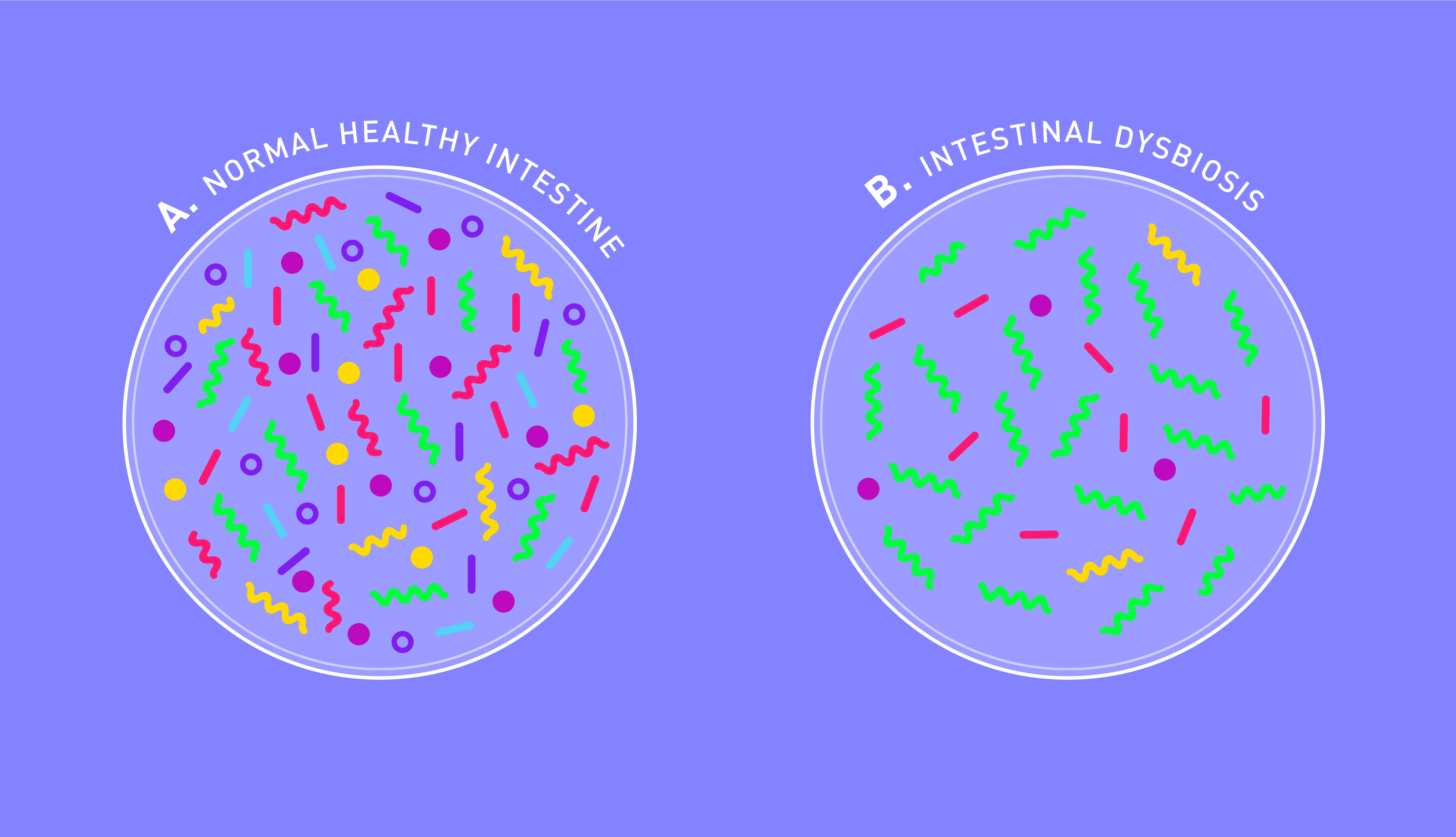
Before you rush out to buy a daily probiotic, there’s a few things you need to consider. The first is that there are different types of IBS, and so there are different probiotics suitable for the different types. So, it pays to do your research into IBS and probiotics first.
Finding the best probiotic brands for IBS depends on your IBS type, your symptoms, and your microbiome. When it comes to probiotics and IBS, there is often a trial and error process involved to find which bacterial species and their strains work best for you.
If you want to know more about the composition of your own gut microbiome, an Atlas Microbiome Test can give you unique insight into your gut bacteria and how they influence your health.
Key takeaway points
-
Probiotics are beneficial live bacteria which can have positive effects on your health. In particular, they can encourage microbiome diversity and may help your microbiome recover after a course of antibiotics.
-
Specific probiotic supplements have been shown to improve IBS symptoms, including constipation, bloating, abdominal pain, abdominal cramps and flatulence
-
Finding the best probiotic brands for IBS depends on your IBS type, your symptoms, and your microbiome
-
You should consult a dietician or nutritionist to help select an effective probiotic
-
With the Atlas microbiome test, you can discover the balance and richness of your gut microbiome. What's more, you will recieve a 1-1 consultation with our expert nutritionist and tailored food recommendations to encourage diversity

- Cha, B, K et al. The Effect of a Multispecies Probiotic Mixture on the Symptoms and Fecal Microbiota in Diarrhea-Dominant Irritable Bowel Syndrome: A Randomized, Double-Blind, Placebo-Controlled Trial, 2012
- Clarke, G et al. Review Article: Probiotics for the Treatment of Irritable Bowel Syndrome - Focus on Lactic Acid Bacteria, 2012
- Dale, H, F et al. Probiotics in Irritable Bowel Syndrome: An Up-To-Date Systematic Review, 2019
- Ducrotté, P et al. Clinical Trial: Lactobacillus plantarum 299v (DSM 9843) Improves Symptoms of Irritable Bowel Syndrome, 2012
- Eskesen, D et al. Effect of the Probiotic Strain Bifidobacterium animalis subsp. Lactis, BB-12, on Defecation Frequency in Healthy Subjects with Low Defecation Frequency and Abdominal Discomfort: A Randomised, Double-Blind, Placebo-Controlled, Parallel-Group Trial, 2015
- Ishaque, S, M et al. A Randomized Placebo-Controlled Clinical Trial of a Multi-Strain Probiotic Formulation (Bio-Kult) in the Management of Diarrhea-Predominant Irritable Bowel Syndrome, 2018
- Kim, H, J et al. A Randomized Controlled Trial of a Probiotic, VSL#3, on Gut Transit and Symptoms in Diarrhoea-Predominant Irritable Bowel Syndrome, 2003
- Kim, H, J et al. A Randomized Controlled Trial of a Probiotic Combination VSL#3 and a Placebo in Irritable Bowel Syndrome with Bloating
- Mezzasalma, V et al. A Randomized, Double-Blind, Placebo-Controlled Trial: The Efficacy of Multispecies Probiotic Supplementation in Alleviating Symptoms of Irritable Bowel Syndrome Associated with Constipation, 2016
☝️DISCLAIMER☝This article is for informational purposes only. It is not intended to constitute or be a substitute for professional medical advice, diagnosis, or treatment.

